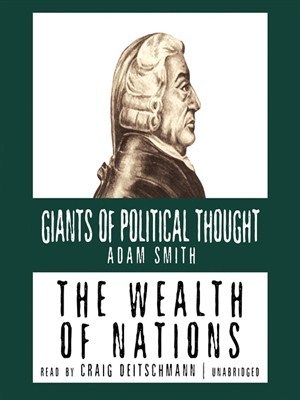
The 'Giants of Political Thought' series is an easy and entertaining way to broaden your mind and your awareness of great ideas. —- This program discusses Smith's general approach to philosophy and how The Wealth of Nations fits into that approach. It then goes on to cover Smith's major themes in this lengthy and complex book. Smith's sometimes difficult discourse is presented with the background information necessary for its comprehension. An Inquiry into the Nature and Causes of the Wealth of Nations is the foundation of classical economics, and it has influenced a broad range of thinkers. In it, Adam Smith stresses the importance of the division of labor to economic progress. He criticizes the arguments for economic planning and offers a detailed theoretical and historical case for free trade. Far more than just a work on economic theory, The Wealth of Nations also contains Smith's views on philosophy, history, and political theory.
Authors

For other authors of this name, see Adam Smith. Wealth of Nations (1776) of Scottish political economist and philosopher Adam Smith laid the foundations of classical free-market theory. Despite the unknown exact date, authorities recorded his baptism on 16 June 1723 at Kirkcaldy. This pioneer among the key figures of the Enlightenment authored The Theory of Moral Sentiments . People consider the first modern work of economics as his magnum opus and widely cite this father. https://en.wikipedia.org/wiki/Adam\_Smith
